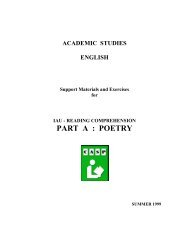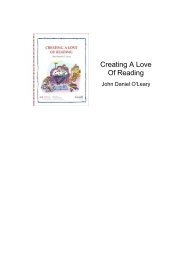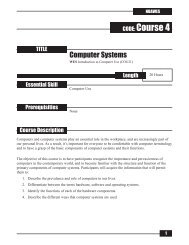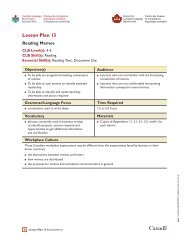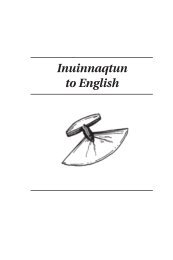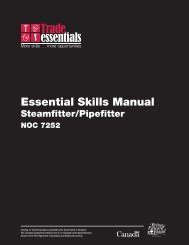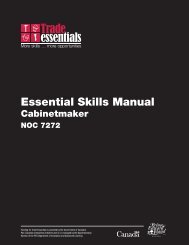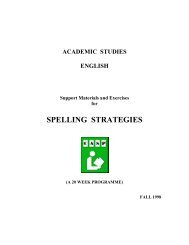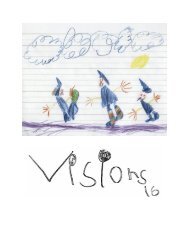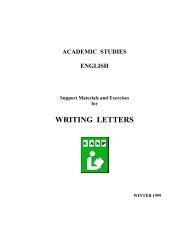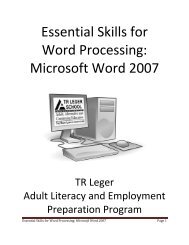Integrating Essential Skills into Training - National Adult Literacy ...
Integrating Essential Skills into Training - National Adult Literacy ...
Integrating Essential Skills into Training - National Adult Literacy ...
Create successful ePaper yourself
Turn your PDF publications into a flip-book with our unique Google optimized e-Paper software.
• whether there is a body of similar past decisions to which the worker can refer<br />
• the extent to which judgement is required to make an appropriate decision<br />
Critical Thinking<br />
Critical thinking is the process of evaluating ideas or information, using a rational, logical<br />
thought process, and referring to objective criteria, to reach a rational judgement about value,<br />
or to identify strength and weakness. Critical thinking means choosing and exercising the<br />
methods most appropriate for determining the true worth, merit or value of something – an<br />
idea, a plan, a statement of supposed fact, etc. It assumes a certain degree of scepticism and a<br />
natural desire for credible, reliable, significant and relevant information.<br />
Critical thinking answers the questions: Why? How? What happens if? Is it true? Critical<br />
thinking always has a goal, an identified purpose; it is the process of making a judgement or<br />
conducting an assessment based on careful analysis, tangible evidence, and logical<br />
interpretation.<br />
Critical thinking uses appropriate clearly identified evaluative standards to distinguish what is<br />
true from what is not, what to accept from what to reject, what will work from what will not.<br />
In addition, critical thinking involves identifying and employing criteria to evaluate the<br />
critical thinking process itself and to validate the outcomes generated. A discovery of error,<br />
new information, a different interpretation – all have the potential to produce a revised<br />
conclusion.<br />
In summary:<br />
• critical thinking involves processes such as clarifying, classifying, determining<br />
causality, generalizing, analysing, examining, evaluating and comparing<br />
• pressure for a judgement to be positive or negative is always a complicating factor<br />
• examples of tasks involving critical thinking begin with words such as “assesses,”<br />
“considers,” “judges,” “analyses,” “interprets,” etc.<br />
Some level of critical thinking is a requirement for all jobs and, by law, required of all adults.<br />
Even at entry-level, workers are expected to think through their actions, assess the worksite<br />
for safety hazards, and carry out tasks that require normal adult judgement.<br />
Some considerations:<br />
◊ the complexity of what is being assessed or considered<br />
◊ whether established assessment criteria exist and, if so, the number of criteria that<br />
must be considered (or must they be developed by the worker in which case the clarity<br />
of criteria or requirement to develop relevant criteria is a factor)<br />
◊ the assessment process itself - how routine or unique the assessment process is, how<br />
great the need is to process information, the incumbent’s role in the critical thinking<br />
process, and the complicating factors that exist<br />
◊ the effects of the critical thinking – how severe are the consequences of error? What<br />
are the occupational risks?



